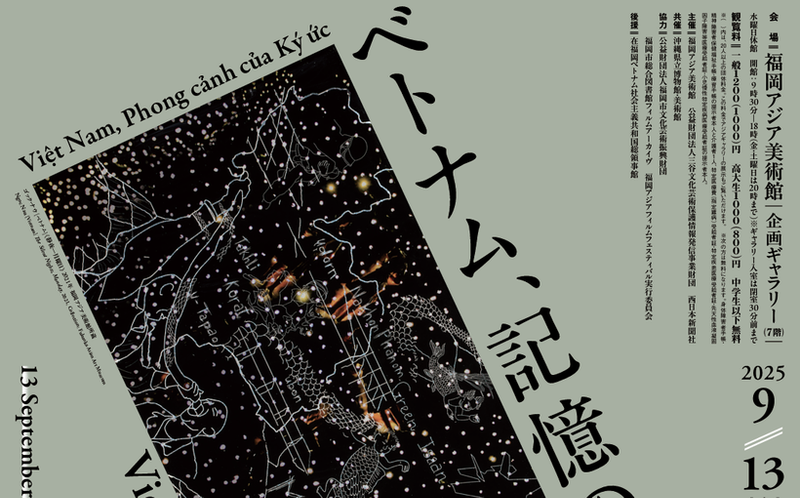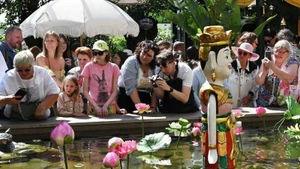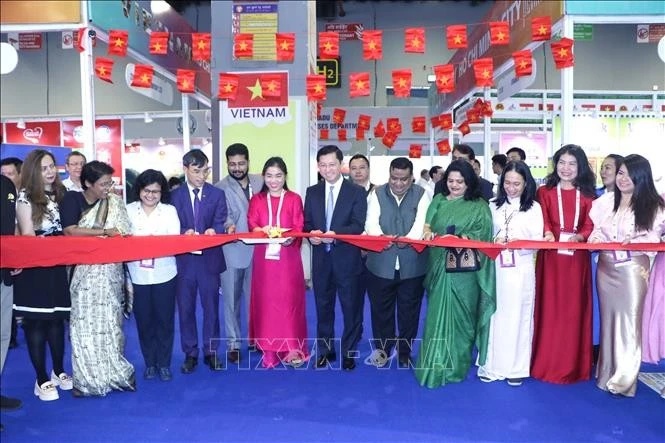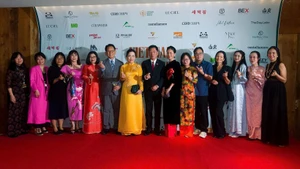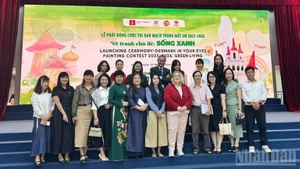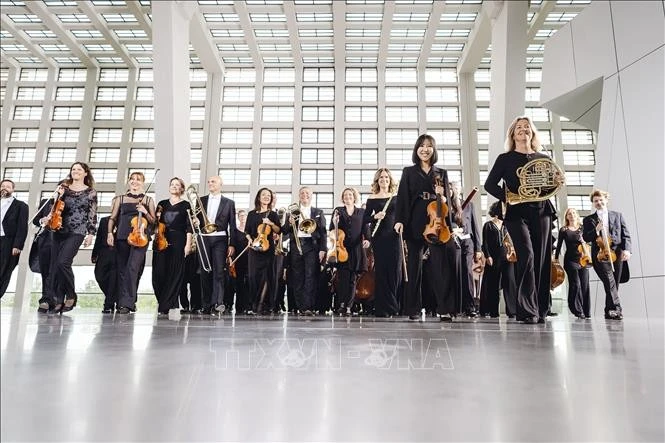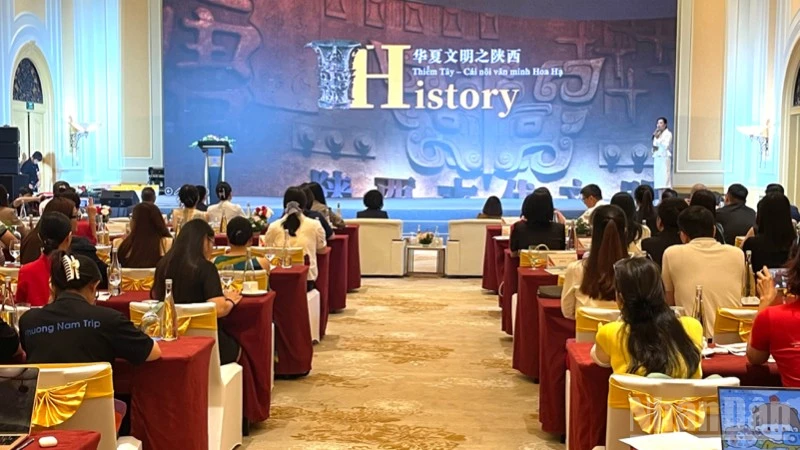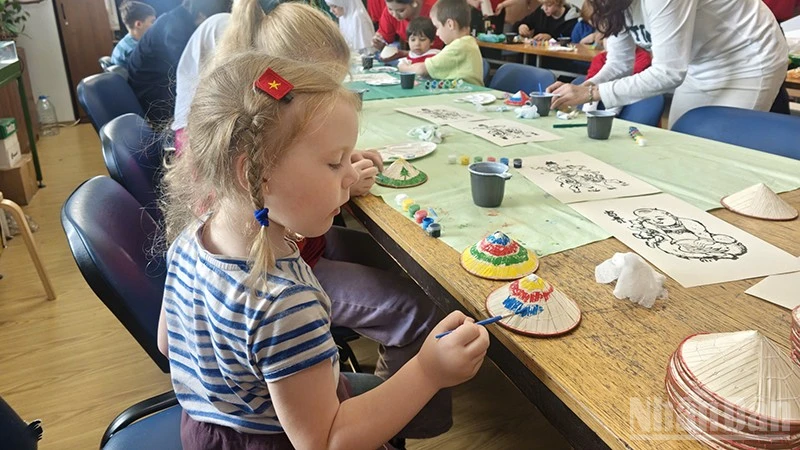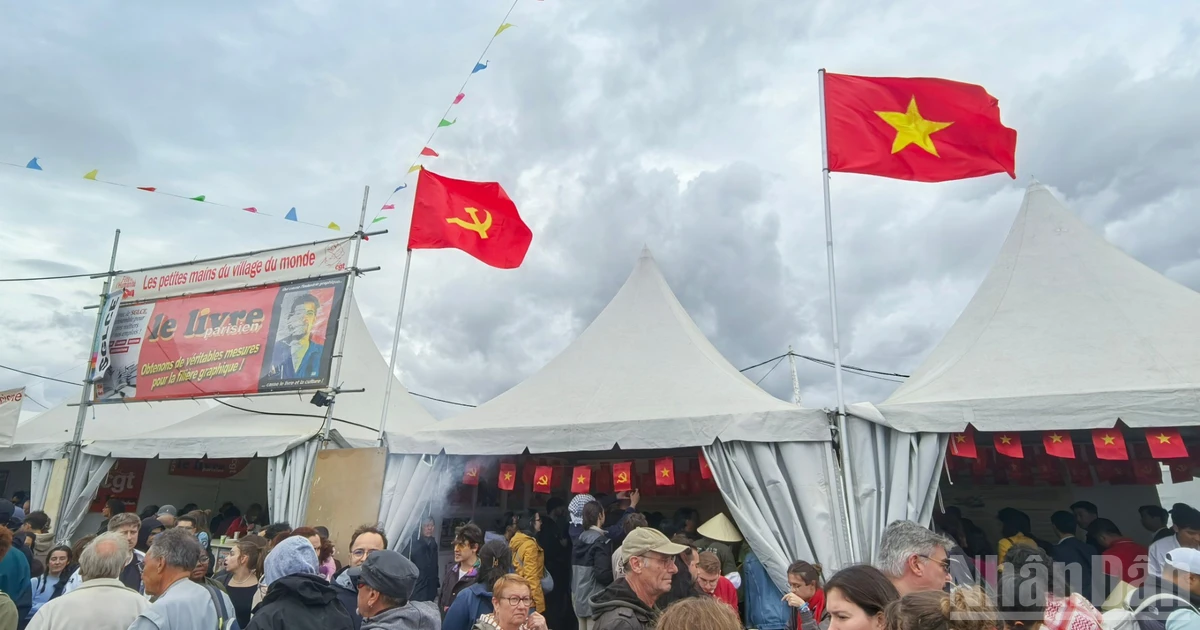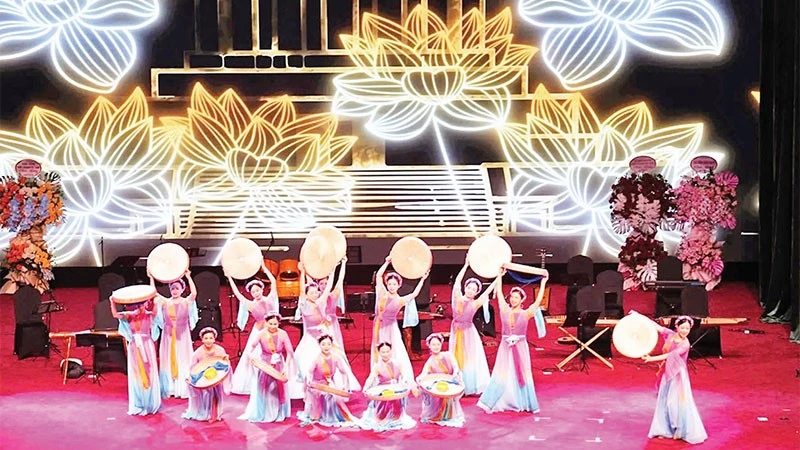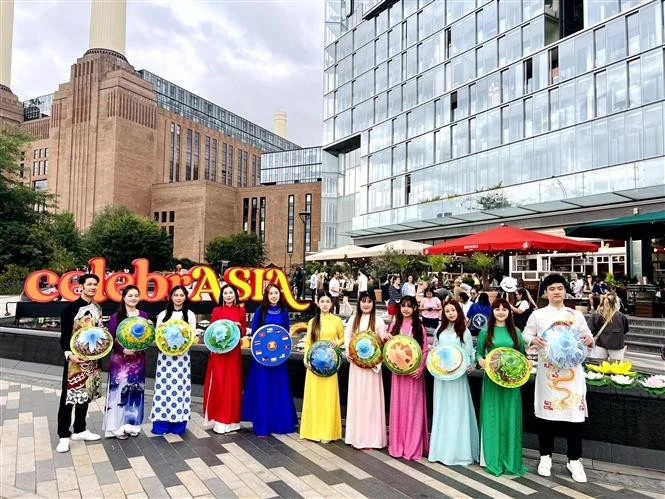The exhibition has been jointly organised by the Fukuoka Asian Art Museum, the Mitani Foundation for the Protection of Cultural and Artistic Properties, and the Nishinippon Shimbun, with support from Japanese cultural and artistic institutions and the Vietnamese Consulate General in Fukuoka.
Featuring more than 110 artefacts and works of fine art — mainly paintings and graphics from the museum’s collection — the exhibition retraces a turbulent century of modern Viet Nam, from the struggle for independence and wartime memories to the Doi Moi period, urban development, and global integration.
Visitors will have the chance to admire silk paintings, oil paintings, and propaganda posters closely associated with the country’s image across different periods, from graceful strokes depicting the ideal of the motherland and the fervour of the resistance wars to scenes of rural life amid transformation.
Contemporary Vietnamese art will also be showcased through works reflecting war memories, haunting experiences, and the personal identities of the post-war generation.

A major highlight of the exhibition is the “Nguyen Phan Chanh Artwork Restoration Project”, carried out by the Mitani Foundation.
Nguyen Phan Chanh (1892-1984) is regarded as an outstanding silk painter of modern Vietnamese art. Many of his works have suffered damage over time due to climate conditions and war.
The restoration of Nguyen Phan Chanh’s paintings is not only intended to preserve their artistic value but also serves as a bridge in Viet Nam-Japan cultural relations, ensuring this heritage is passed on to future generations.
The exhibition is expected to offer Japanese and international audiences deeper insight into the history and art of modern Viet Nam, while further strengthening cultural exchange between Viet Nam and Japan.
